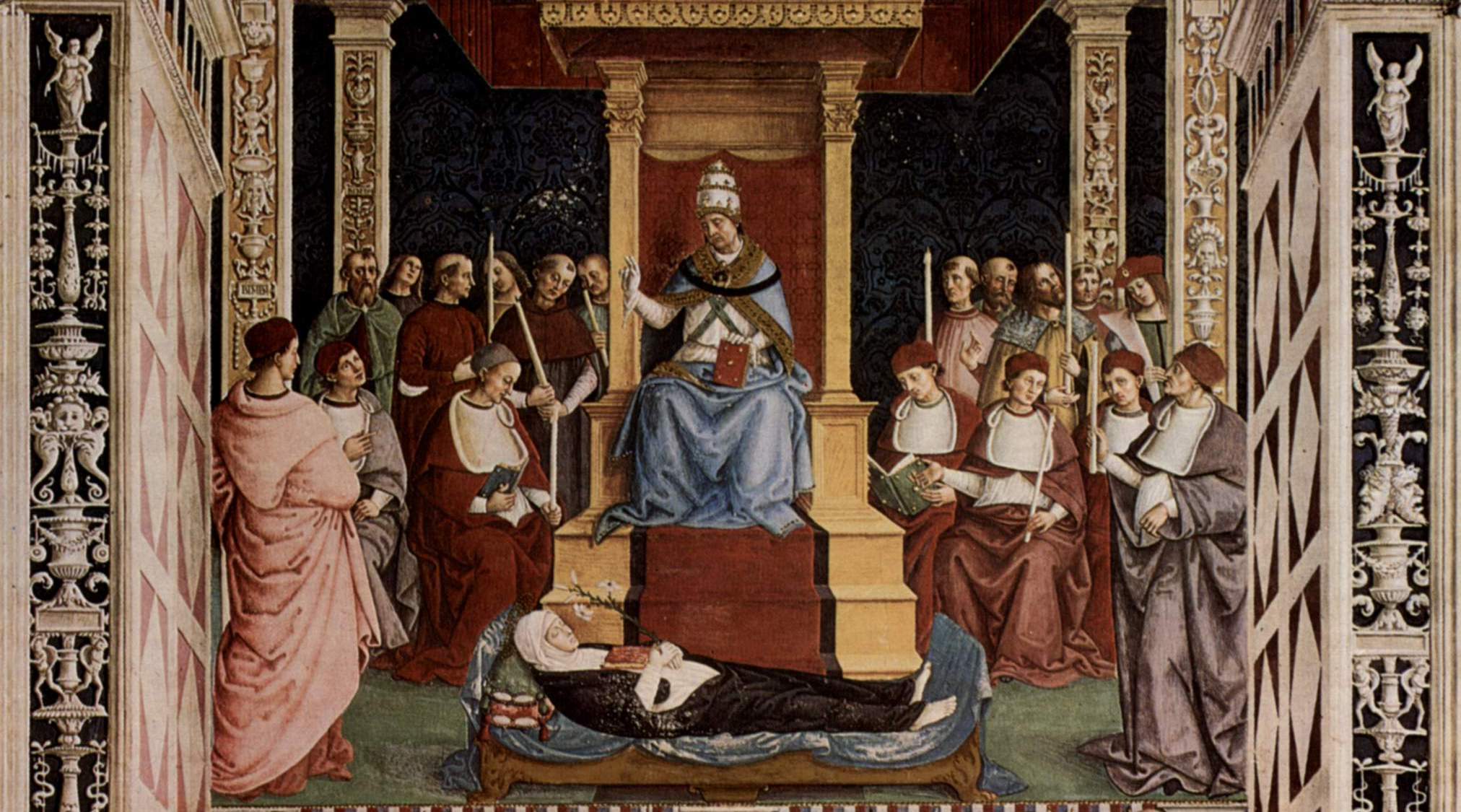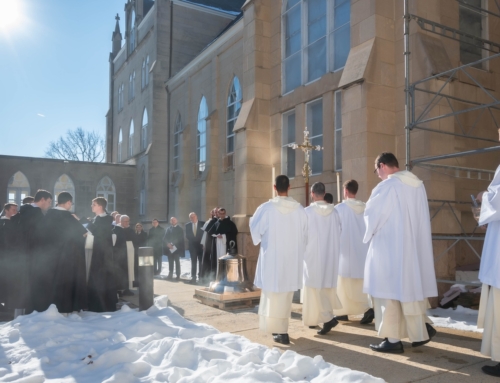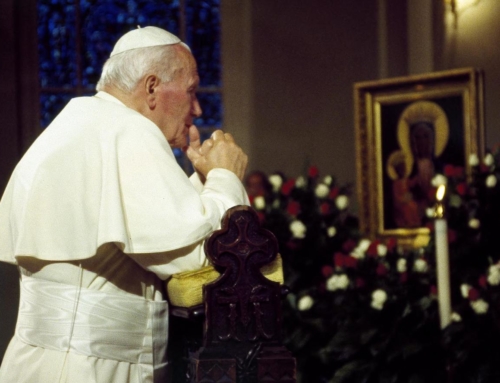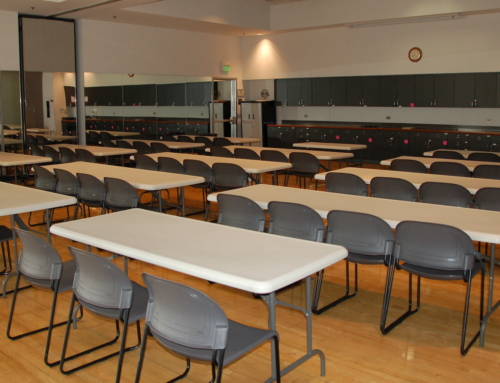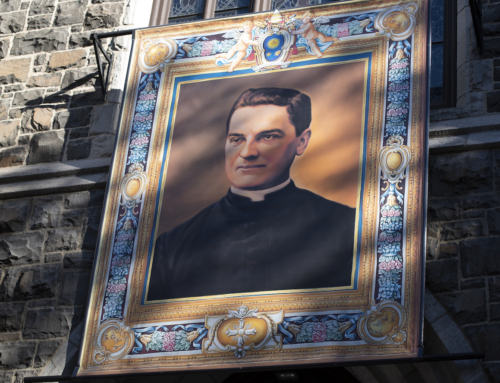When he saw the crowds, he went up the mountain, and after he had sat down, his disciples came to him. He began to teach them . . . . (Matt 5:1–2)
Today the Church celebrates the Feast of the Chair of Saint Peter. While it may seem that Catholics have a feast day for a piece of furniture, what we actually celebrate today is the great gift that Christ left his Church: the continuity of his teaching in the ministry of Saint Peter, which continues through the ages. Today the Church celebrates the same chair that called councils, declared saints, confirmed the Order of Preachers in 1216, and proclaimed dogmas like the Immaculate Conception.
How does the Church accomplish this teaching ministry? She follows the example of Christ the teacher. Portraying Jesus’s Sermon on the Mount, Saint Matthew recalls the particular detail that Jesus sat down before he taught the Beatitudes. This action of sitting expresses the stability of Jesus’s teaching that does not vary depending on the time or season, nor is shaken by worldly distractions or selfish interests. The mount on which Christ preaches the sermon foreshadows him ascending the hill of Calvary and his Crucifixion, which itself is a stable school of love. Stat crux dum volvitur orbis as the Carthusian motto reminds us—the cross stands firm while the world turns.
Christ has given the world a stable source of truth and love, as stable as the cross. He promised that upon the rock of Peter he would build his Church, and this Petrine rock took form on the Vatican Hill in Rome when Saint Peter shared in the sufferings of Christ and was crucified for his faith and preaching. Today, his ministry continues, firmly built upon his very bones. Saint Peter’s example shows us that belief in Christ’s stable teaching requires a faithful commitment that, as his martyrdom shows, is not always easy.
The teachings of Jesus Christ, however, are always true and for our own good. Still, our own sinfulness can keep us from realizing this and lead us to strike out on our own in search of something other than what Christ already presents to us. By recalling the traditional seated posture of the teacher, today’s feast is really an opportunity for us to reflect upon our own lives. We can ask ourselves if we are gathering at the feet of the seated Jesus to listen to his words, or if we are chasing after one unstable teaching after another that continues to run dry and leave us disappointed.
Jesus gave Peter the keys to the kingdom of heaven, as we heard in today’s Gospel, and with these keys came the authority over matters of heaven and earth (Matt 16:13–19). Throughout the ages the Church has concerned herself with the right and clear teaching of the things of heaven, not for its own sake, but out of love for Christ. She echoes Saint Peter’s confession “Lord, you know that I love you,” and Jesus’s response to Peter was the command to feed his flock (John 21:15–17). This interrelated mission of love for Jesus and care for his people is what gives the Petrine ministry its purpose. The nourishment which Christ commands Peter to carry out certainly includes the celebration of the sacraments, especially the Eucharist. But today’s celebration especially highlights the Petrine ministry of teaching the Gospel message as a means of caring for Christ’s flock who so desperately thirst for the water, that they may never again be thirsty (John 4:15).
✠
Image: Bernardino Pinturicchio, Pope Pius II Canonizes Catherine of Siena

